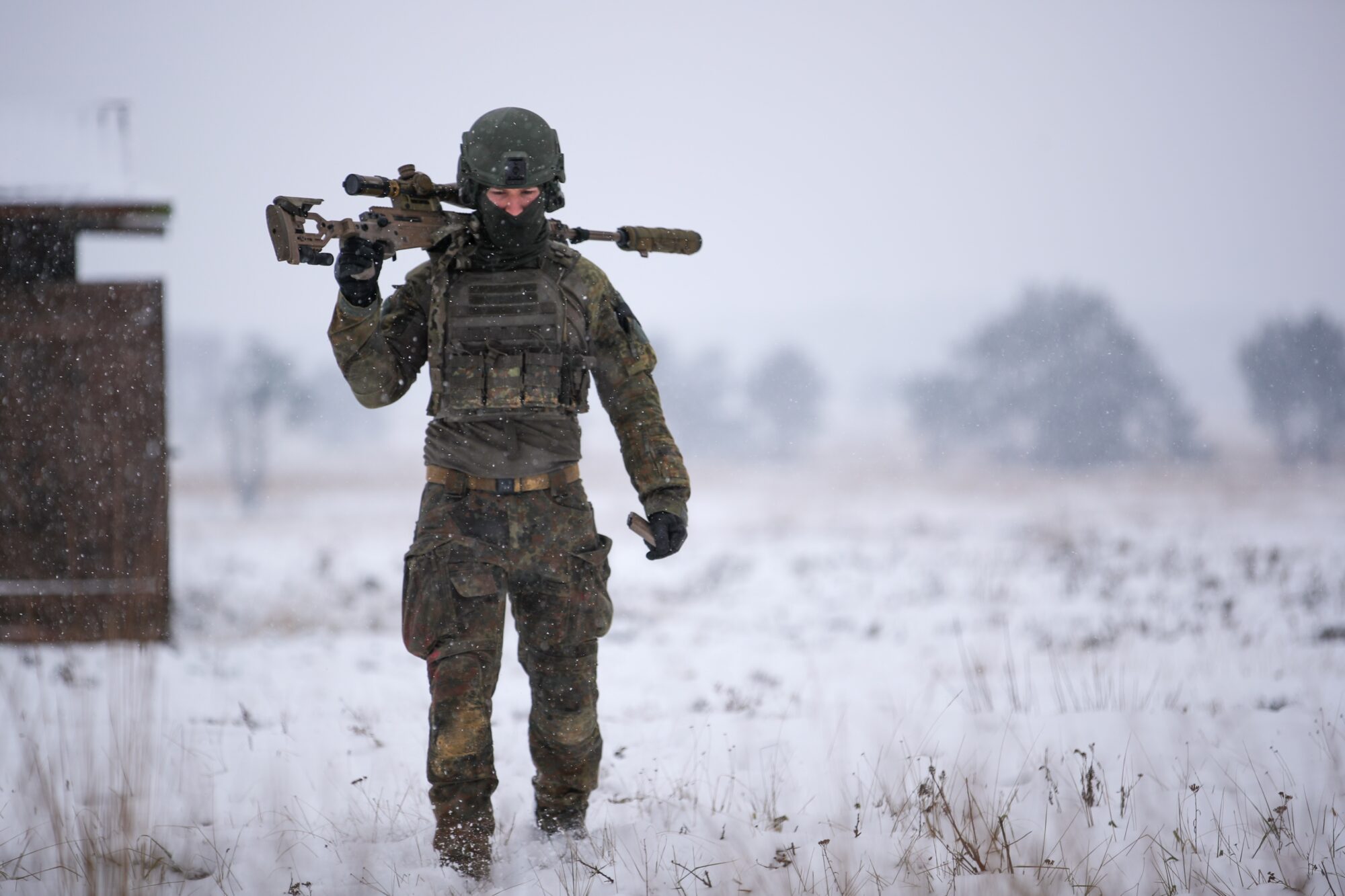
Photo: @bundeswehrInfo on X
The looming retreat of American military power from Europe—alongside the risk of direct conflict with Russia and China—will force Germany to rethink its defense strategy, the country’s defence minister Boris Pistorius has warned,
Adding that Berlin should prepare for open conflict by 2030, the social democratic politician made the remarks in tell-all interviews with German media over the weekend, even arguing that—in readiness for the turmoil ahead—Berlin may need to explore a return to partial conscription—as seen in modern Sweden.
All young women and men are mustered there, and only a select few of them end up doing basic military service. Whether something like this would also be conceivable for us is part of these considerations,”
Pointing both to the United States’ apparent shift in its geopolitical focus to the Indo-Pacific region and to the rise of China, Pistorius alleges that the continent and Germany, in particular, are ill-prepared to deal with the military crises ahead. He predicts possible wars in Georgia, Moldova and the Baltic States, all caused by Russian expansionism.
Pistorius maintains that Germany has “about five to eight years” to get its defence forces in shape to meet the Russian threat head-on and prepare for warfare in its immediate vicinity.
Neglected by successive governments, Germany’s defense policy was thrown into chaos following the Kremlin’s Ukraine invasion of 2022, with Berlin already injecting an estimated €17.1 billion into Ukrainian military efforts, according to official figures.
Describing the potential for future Russian aggression as not merely “sabre-rattling”, Pistorius added that Europe was well behind the industrial arms race in comparison to a military build-up in Russia. Perhaps most controversially Pistorius suggested the need for European military contingents outside of the bloc, even inside authoritarian states, to prevent Russian and Chinese influence in the years to come.
The conflict in Ukraine has pushed the envelope on the concept of European “strategic autonomy” free from the need for the American military umbrella, as the EU struggles to form a common foreign policy.
There is considerable worry among Eurocrats about the potential for a second Trump term after 2024, bringing the risk that a new era of Americanism isolationism could have for Europe’s underprepared defences.
Pistorius’s remarks dovetail with his signing off on sending German troops to be permanently stationed in Lithuania. This marks a post-war historic first, with the deployment allowing Germany to prepare for a potential Russian incursion into the Baltic states.
